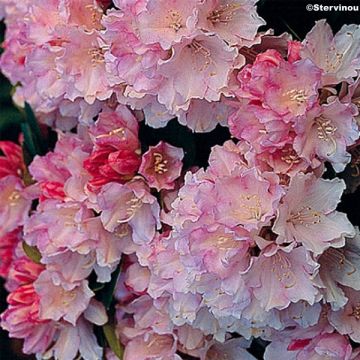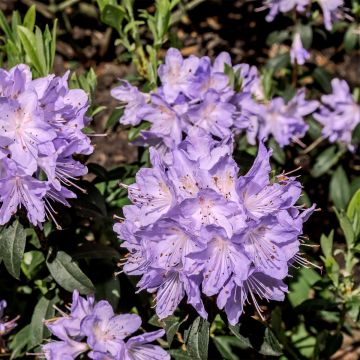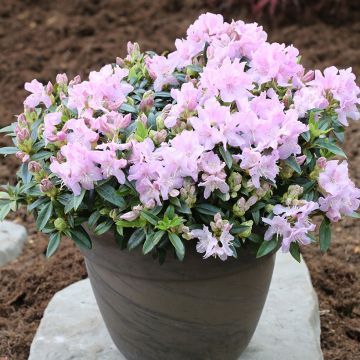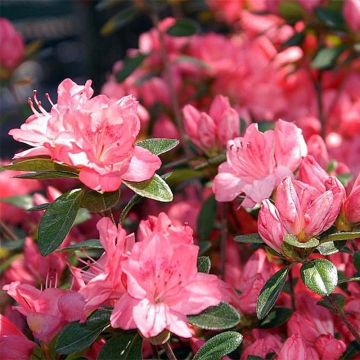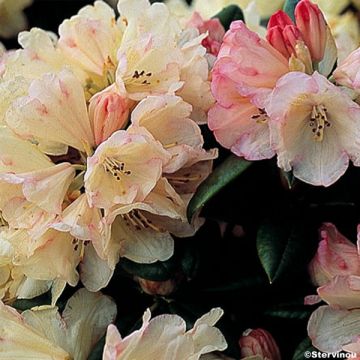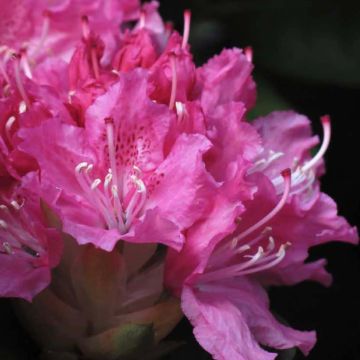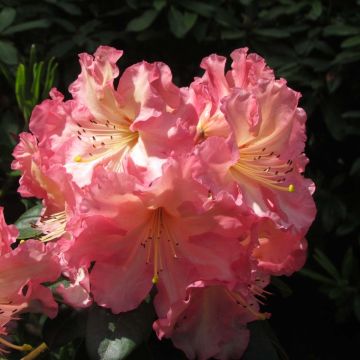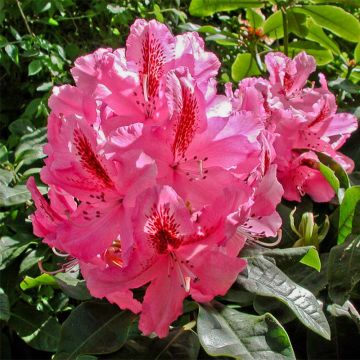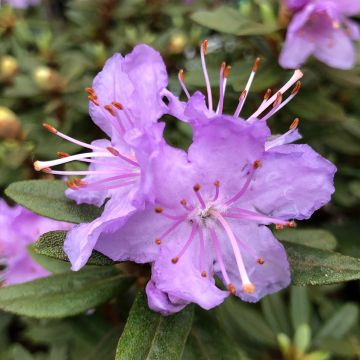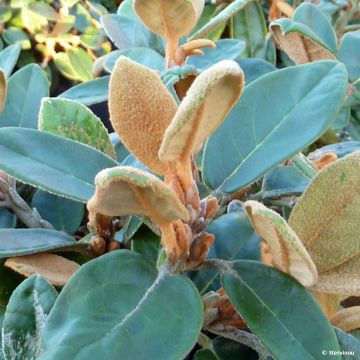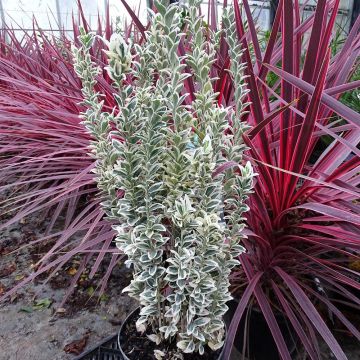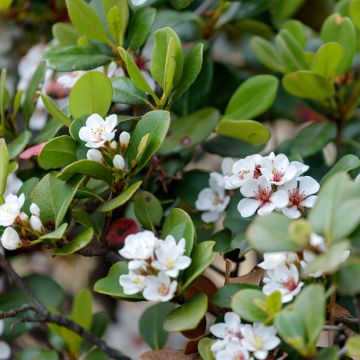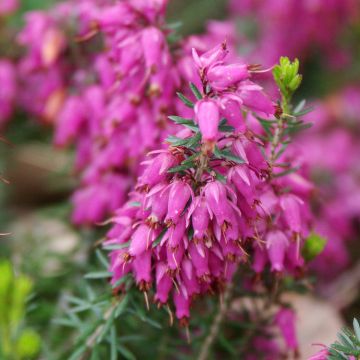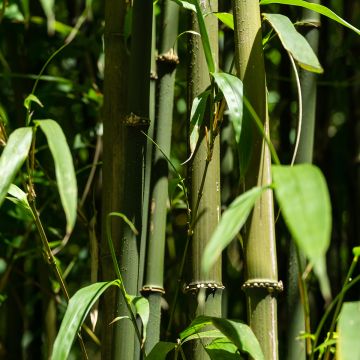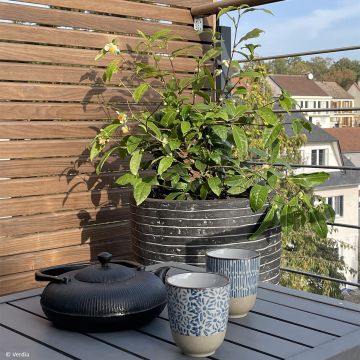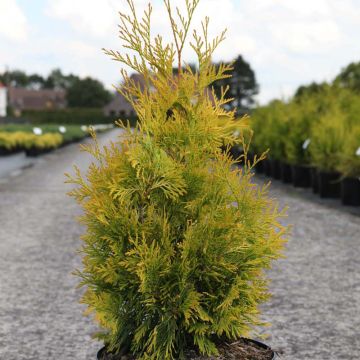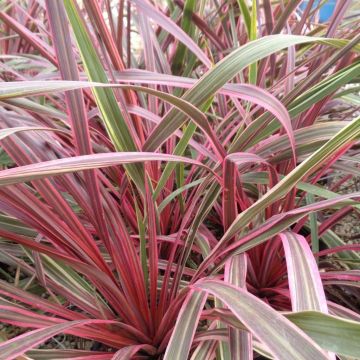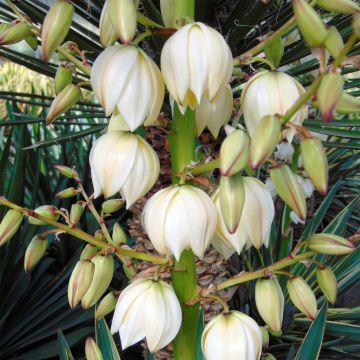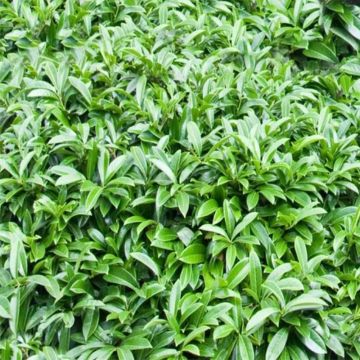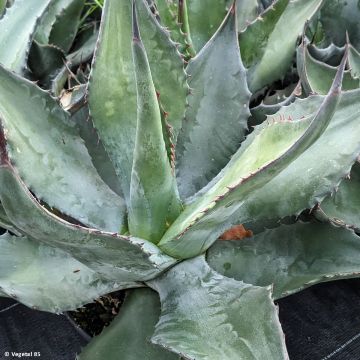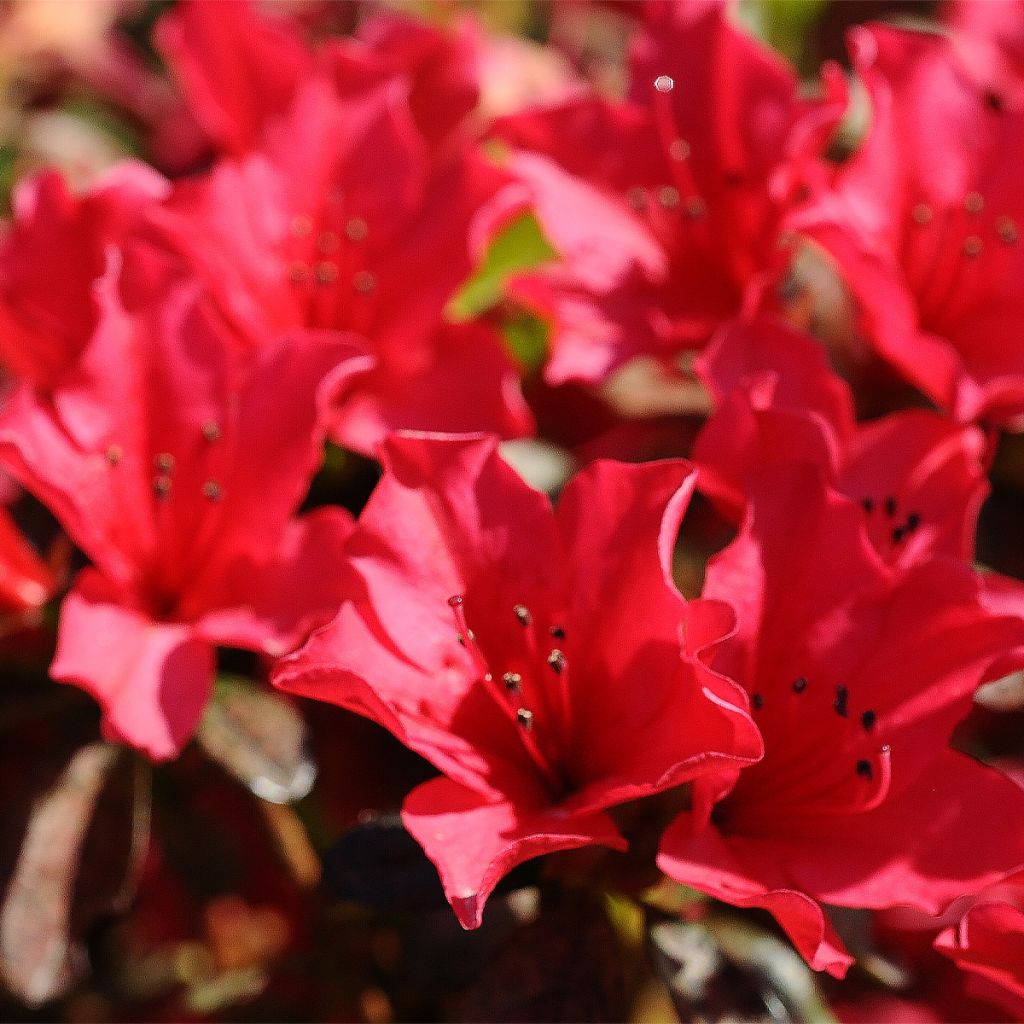

Rhododendron Elizabeth Red Foliage
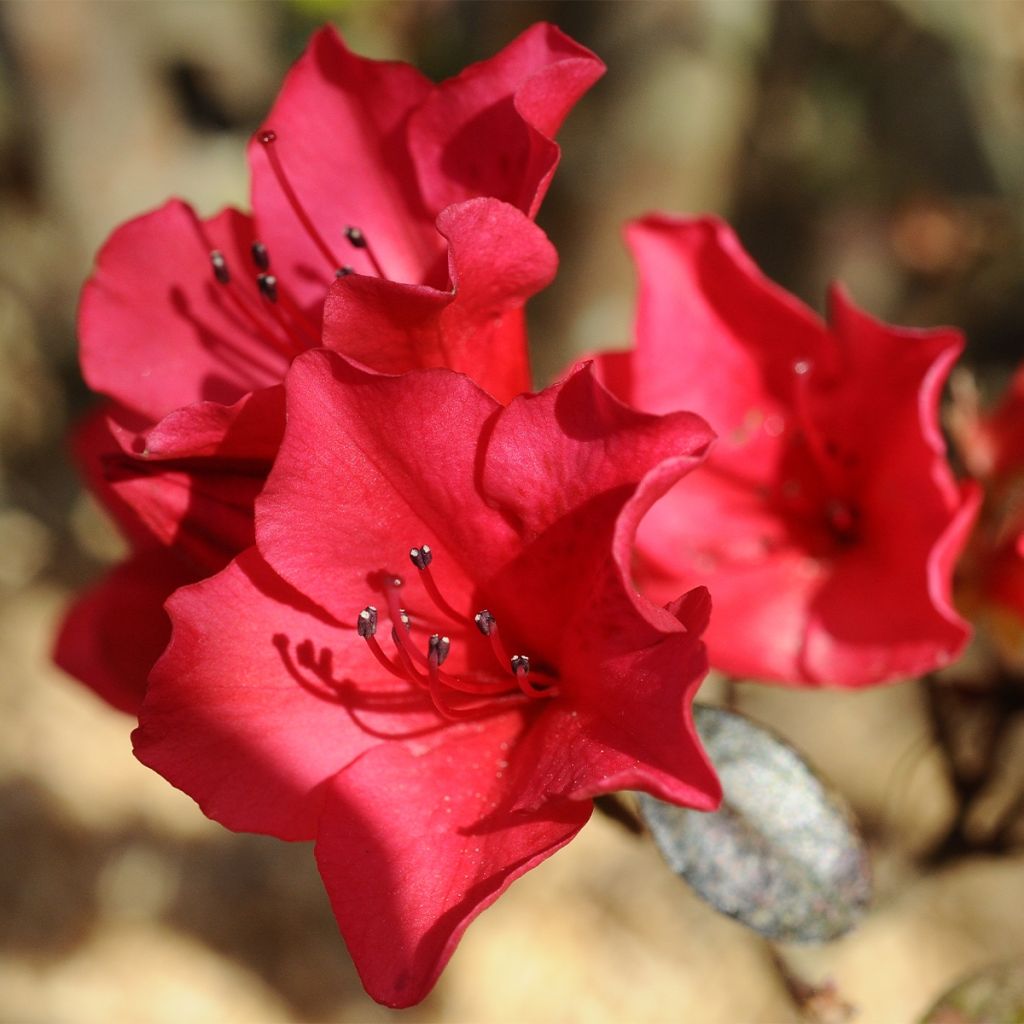

Rhododendron Elizabeth Red Foliage
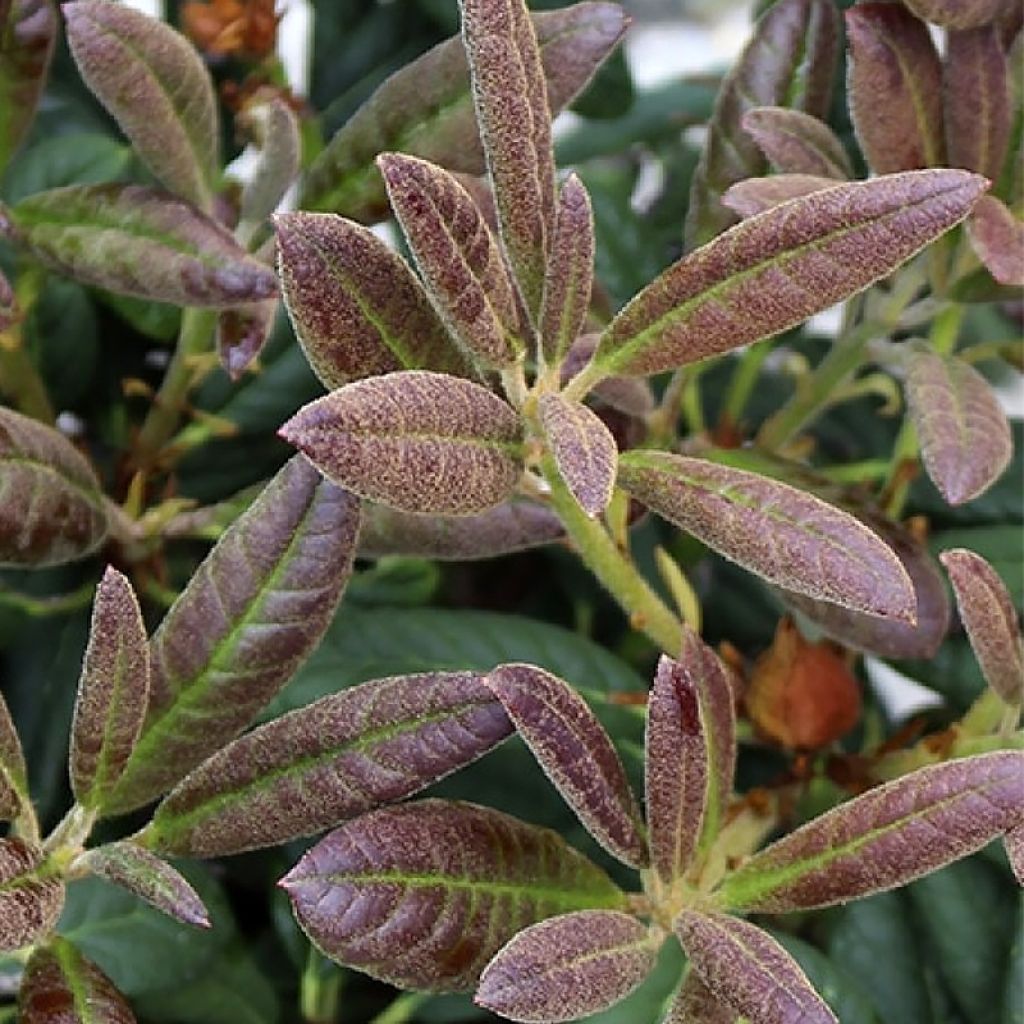

Rhododendron Elizabeth Red Foliage
Rhododendron Elizabeth Red Foliage
Rhododendron Elizabeth Red Foliage
Rhododendron
This item cannot be shipped to the selected country
Delivery charge from €5.90
More information
Delivery charge from €5.90
More information
Schedule delivery date,
and select date in basket
This plant carries a 24 months recovery warranty
More information
We guarantee the quality of our plants for a full growing cycle, and will replace at our expense any plant that fails to recover under normal climatic and planting conditions.
From €5.90 for pickup delivery and €6.90 for home delivery
Express home delivery from €8.90.
Does this plant fit my garden?
Set up your Plantfit profile →
Description
Rhododendron Elizabeth Red Foliage is a compact hybrid that offers a magnificent orange-red flowering. This shrub, with its compact and rounded habit, has the particularity of producing young purple shoots in spring, which then turn into a more classic dark green. This little vegetal gem grows in acidic and slightly moist soil, preferably in partial shade, and is not afraid of the cold. Perfect for borders, at ease in small gardens, it can also be grown in pots on a patio.
Rhododendrons are plants from the Ericaceae family, which includes about a hundred genera, many of which are widespread in our gardens. Heather, Kalmia, Andromeda, Leucothoe, Oxydendrum or Gaultheria are precious in ornamental beds, while Arbutus and especially Blueberries delight us with their fruits. For the most part, these plants prefer soils devoid of limestone, with an acidic tendency, as well as wet climates.
Rhododendron 'Elizabeth Red Foliage' was obtained in the United States in 1958 by the breeder Endre Ostbo. Passionate about plants and hybridisation, he opened his nursery in the city of Bellevue (Washington state, near Seattle) in 1940. His variety 'Elizabeth Red Foliage' is a hybrid of the Rhododendron griersonianum, native to Yunnan (China) and Burma. This Rhododendron forms a bush with a rounded habit and relatively slow growth, 10 to 20 cm (4 to 8in) per year, reaching about 1 m (3ft) in height in 10 years, and a little more in width. Its evergreen and leathery leaves with a shiny dark green colour are elliptical in shape, elongated, measuring from 6 to 10 cm (2 to 4in) in length and covering the plant well. They have the very unique characteristic of being purple when they emerge in spring, similar to those of Pieris, which is an additional asset of this variety.
Its other advantage is its striking flowering in April-May. Grouped in corymbs at the end of the branches, the flower buds open into funnel-shaped flowers of a bright red, slightly orange, forming a magnificent spectacle.
This Rhododendron obviously thrives in ericaceous soil, therefore in acidic soil (pH 4.5 to 5.5) and moist, even damp conditions. It prefers partially shaded exposures and does not like drought or limestone. Its cold resistance is very good, at least down to -20°C.
The abundant and brightly coloured flowering of this small Rhododendron Elizabeth Red Foliage will easily dress up a small shaded area of the garden, along with ferns, such as the very graphic hart's-tongue fern (Phyllitis scolopendrium) with its wide and flat persistent foliage. Blue or variegated Hostas, Pieris, Japanese Maples, or other Rhododendrons will create beautiful patchworks of textures and colours in spring. Associate it with Andromeda polifolia Nikko, a charming little bush with pale pink bell-shaped flowers, and with Skimmia, with their beautiful blooms and decorative fruits. To create sumptuous foliage contrasts, plant Acer shirasawanum Aureum behind this small Rhododendron, a Japanese maple with foliage ranging from tender green to golden and then orange.
Rhododendron Elizabeth Red Foliage in pictures
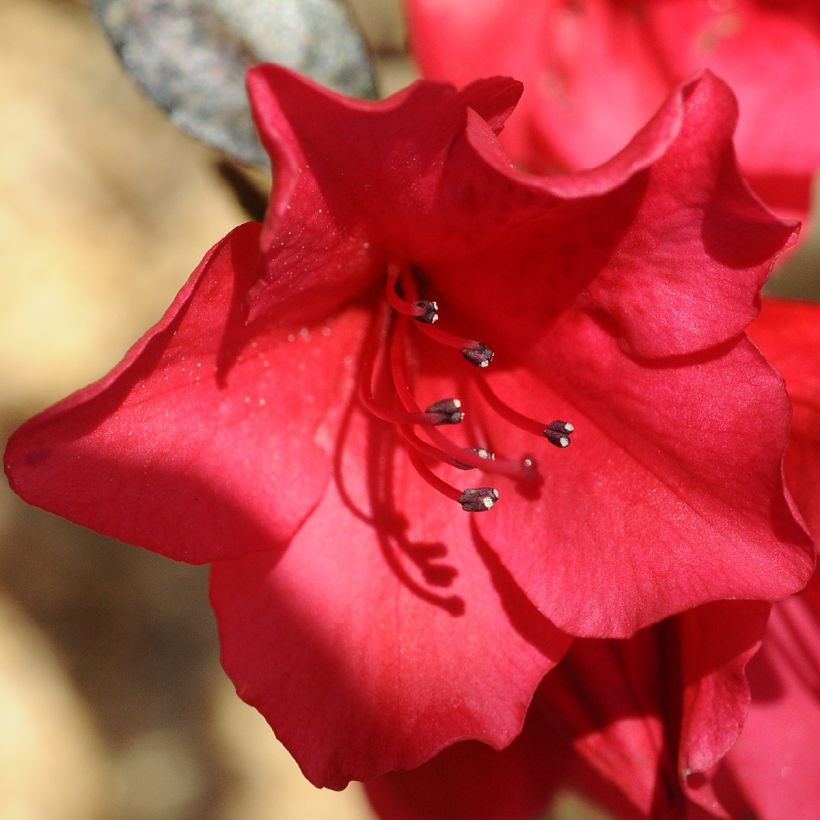

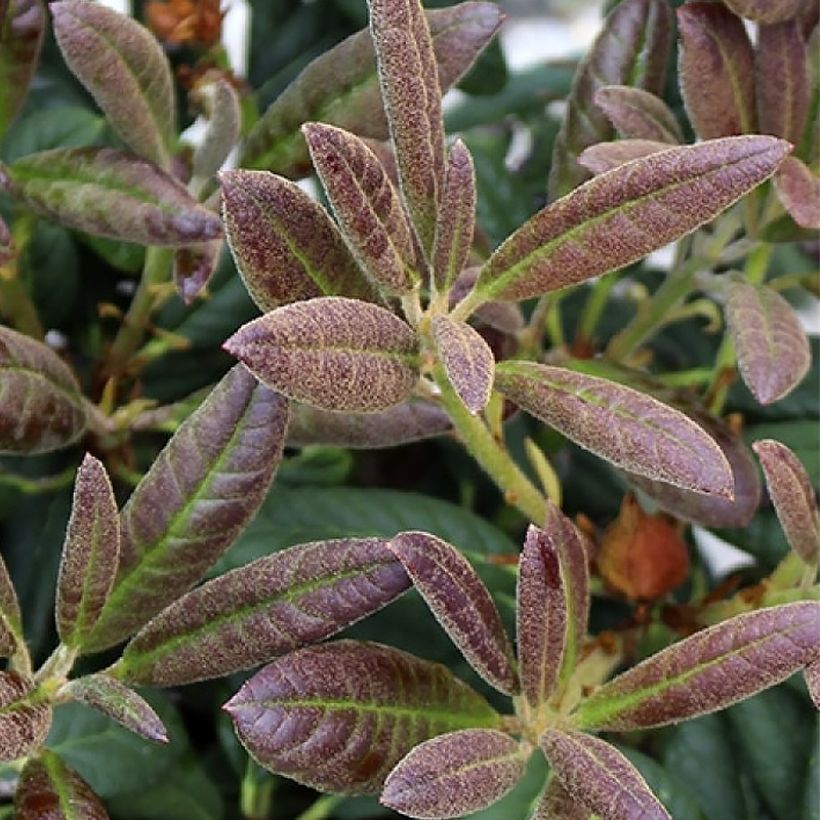

Plant habit
Flowering
Foliage
Botanical data
Rhododendron
Elizabeth Red Foliage
Ericaceae
Rhododendron
Cultivar or hybrid
Other Small Rhododendron
Planting and care
Plant the 'Elizabeth Red Foliage' Rhododendron in a semi-shaded position, protected from cold and drying winds, in a damp, humus-rich, and light soil with an acidic tendency. Like all plants in the heath family, it does not tolerate limestone soils or heavy soils saturated with water in winter. Dig a hole three times larger than the pot. Soak the root ball in non-calcareous water and plant the shrub at the level of the collar, in a mixture composed of 1/4 compost, humus, gravel or pumice, and loam. Water generously and keep the soil moist in summer.
Azaleas and Rhododendrons have a shallow and relatively limited root system. Therefore, they are sensitive to long periods of drought. That is why it is recommended to enrich the soil with humus beforehand and water abundantly with non-calcareous water during dry periods. In addition, this root system is not very strong, which is why it is essential to lighten heavy soils with draining materials (gravel, pumice, clay pellets) when planting. Apply a mulch of shredded pine bark around the base of the bush every spring to maintain soil moisture while keeping an acidic pH.
Maintenance involves removing old faded flowers in summer using pruning shears and clearing the plant of dead branches. Azaleas and Rhododendrons can sometimes be attacked by weevils that eat the edges of leaves and rootlets, as well as the infamous "rhododendron beetle" which does not often cause significant damage. Yellowing of the leaves (chlorosis) in Rhododendrons indicates poor iron assimilation in the soil and can lead to the premature death of the plant. While limestone is generally the cause, poorly-drained soil or deeply planted root balls can also explain the phenomenon.
Planting period
Intended location
Care
This item has not been reviewed yet - be the first to leave a review about it.
Evergreen shrubs
Haven't found what you were looking for?
Hardiness is the lowest winter temperature a plant can endure without suffering serious damage or even dying. However, hardiness is affected by location (a sheltered area, such as a patio), protection (winter cover) and soil type (hardiness is improved by well-drained soil).

Photo Sharing Terms & Conditions
In order to encourage gardeners to interact and share their experiences, Promesse de fleurs offers various media enabling content to be uploaded onto its Site - in particular via the ‘Photo sharing’ module.
The User agrees to refrain from:
- Posting any content that is illegal, prejudicial, insulting, racist, inciteful to hatred, revisionist, contrary to public decency, that infringes on privacy or on the privacy rights of third parties, in particular the publicity rights of persons and goods, intellectual property rights, or the right to privacy.
- Submitting content on behalf of a third party;
- Impersonate the identity of a third party and/or publish any personal information about a third party;
In general, the User undertakes to refrain from any unethical behaviour.
All Content (in particular text, comments, files, images, photos, videos, creative works, etc.), which may be subject to property or intellectual property rights, image or other private rights, shall remain the property of the User, subject to the limited rights granted by the terms of the licence granted by Promesse de fleurs as stated below. Users are at liberty to publish or not to publish such Content on the Site, notably via the ‘Photo Sharing’ facility, and accept that this Content shall be made public and freely accessible, notably on the Internet.
Users further acknowledge, undertake to have ,and guarantee that they hold all necessary rights and permissions to publish such material on the Site, in particular with regard to the legislation in force pertaining to any privacy, property, intellectual property, image, or contractual rights, or rights of any other nature. By publishing such Content on the Site, Users acknowledge accepting full liability as publishers of the Content within the meaning of the law, and grant Promesse de fleurs, free of charge, an inclusive, worldwide licence for the said Content for the entire duration of its publication, including all reproduction, representation, up/downloading, displaying, performing, transmission, and storage rights.
Users also grant permission for their name to be linked to the Content and accept that this link may not always be made available.
By engaging in posting material, Users consent to their Content becoming automatically accessible on the Internet, in particular on other sites and/or blogs and/or web pages of the Promesse de fleurs site, including in particular social pages and the Promesse de fleurs catalogue.
Users may secure the removal of entrusted content free of charge by issuing a simple request via our contact form.

































